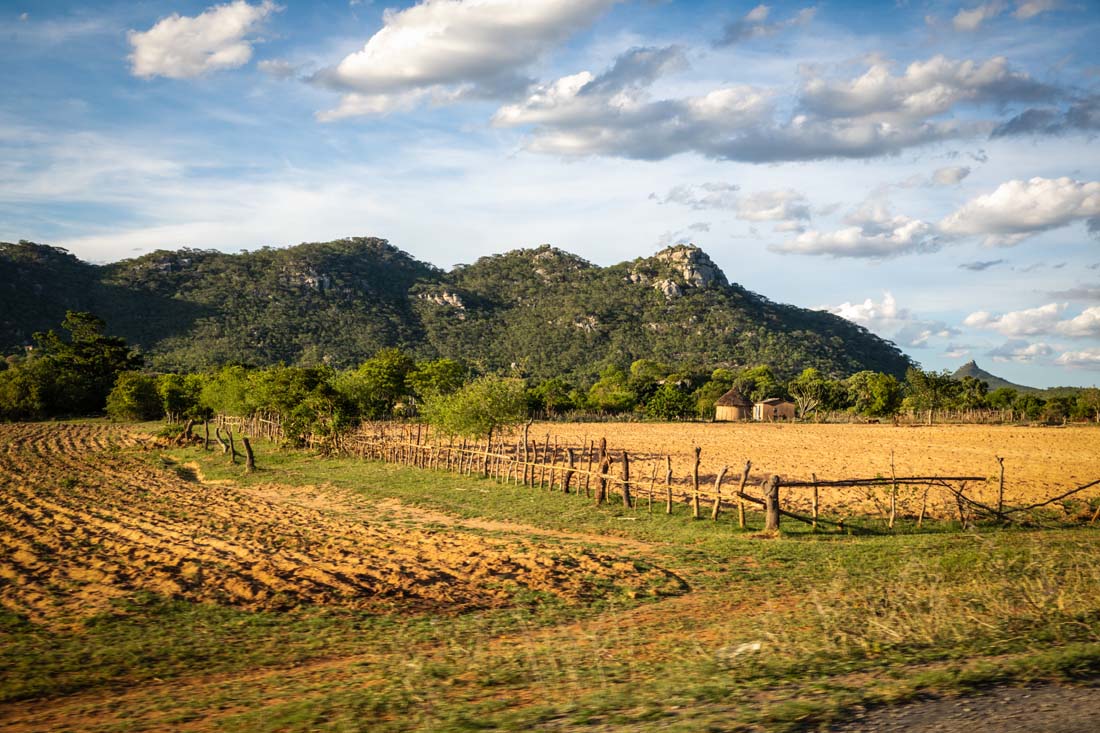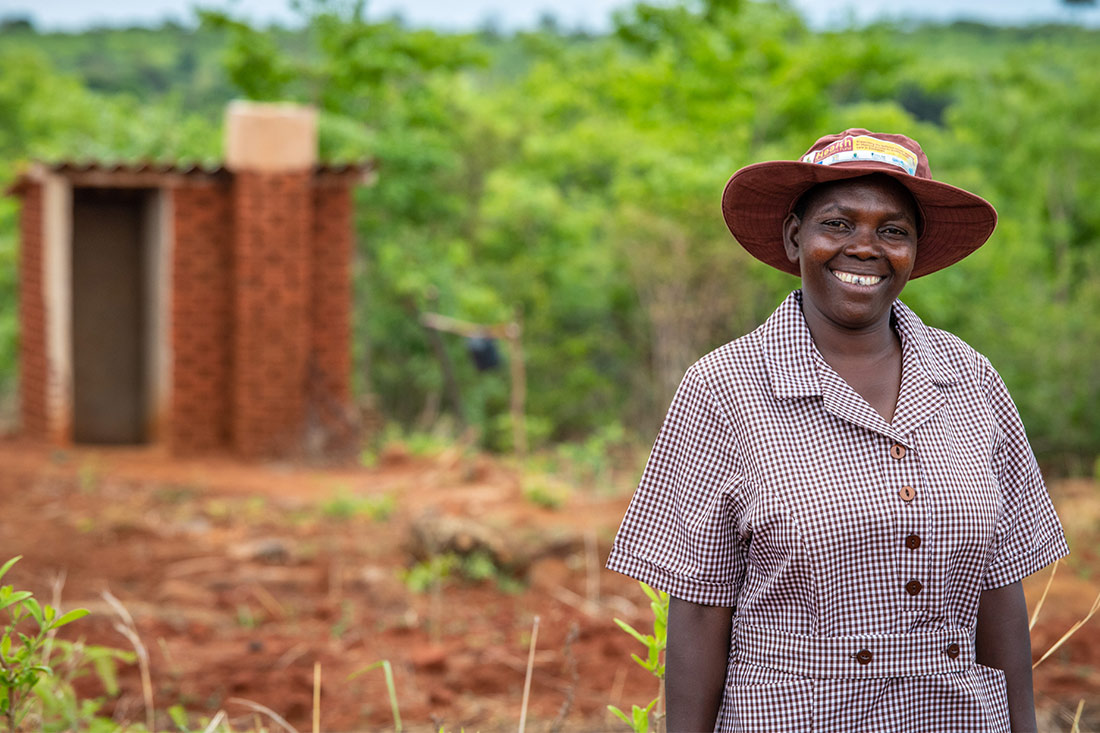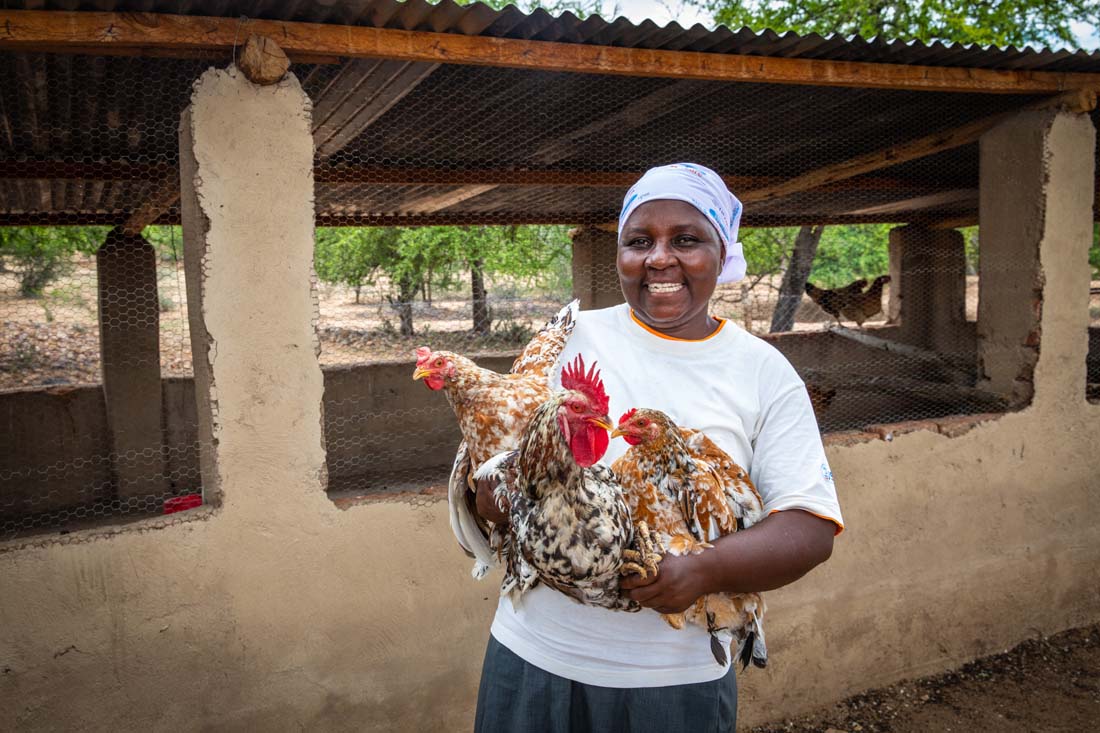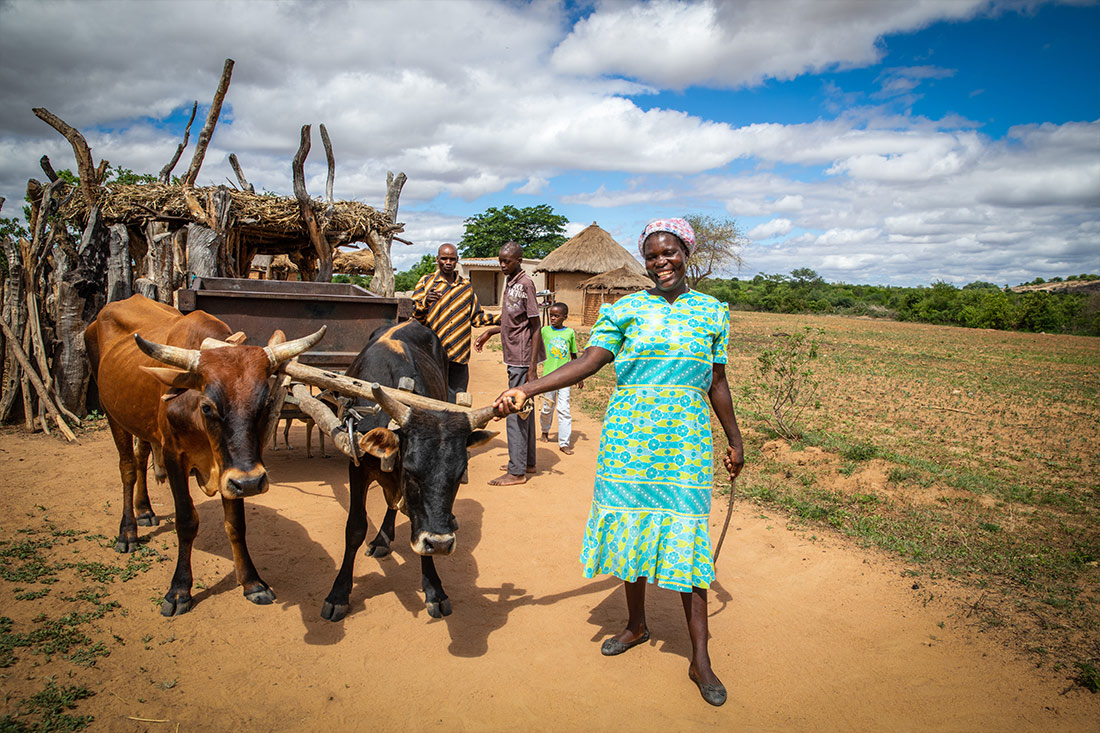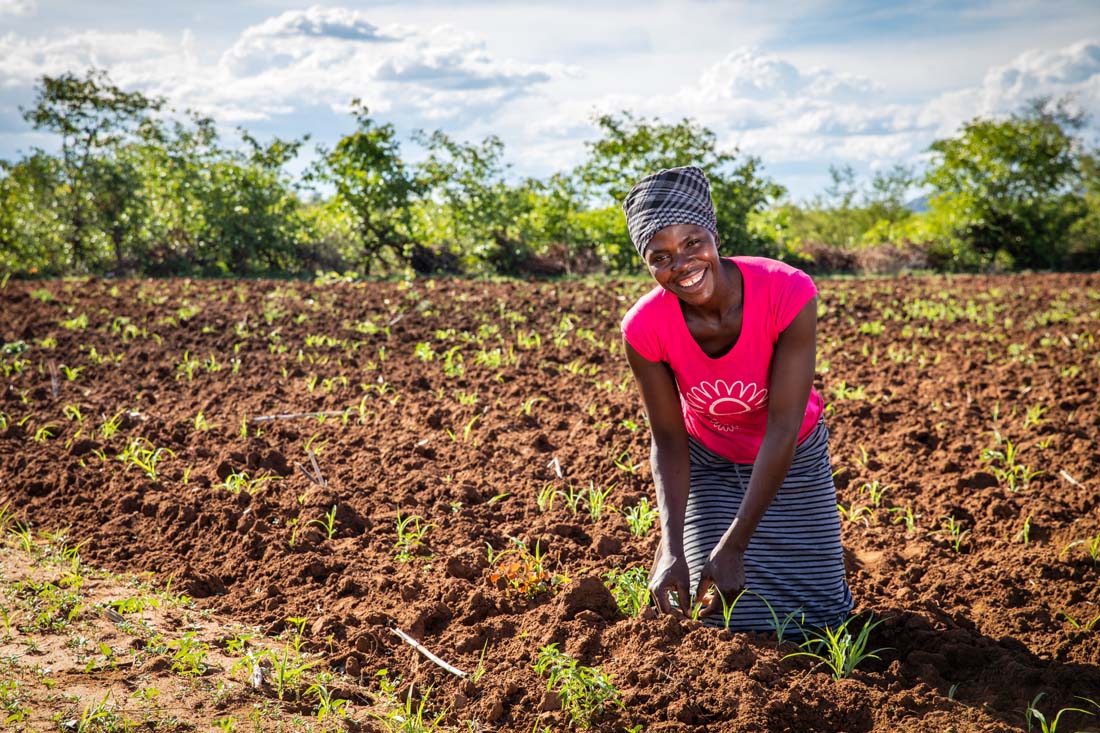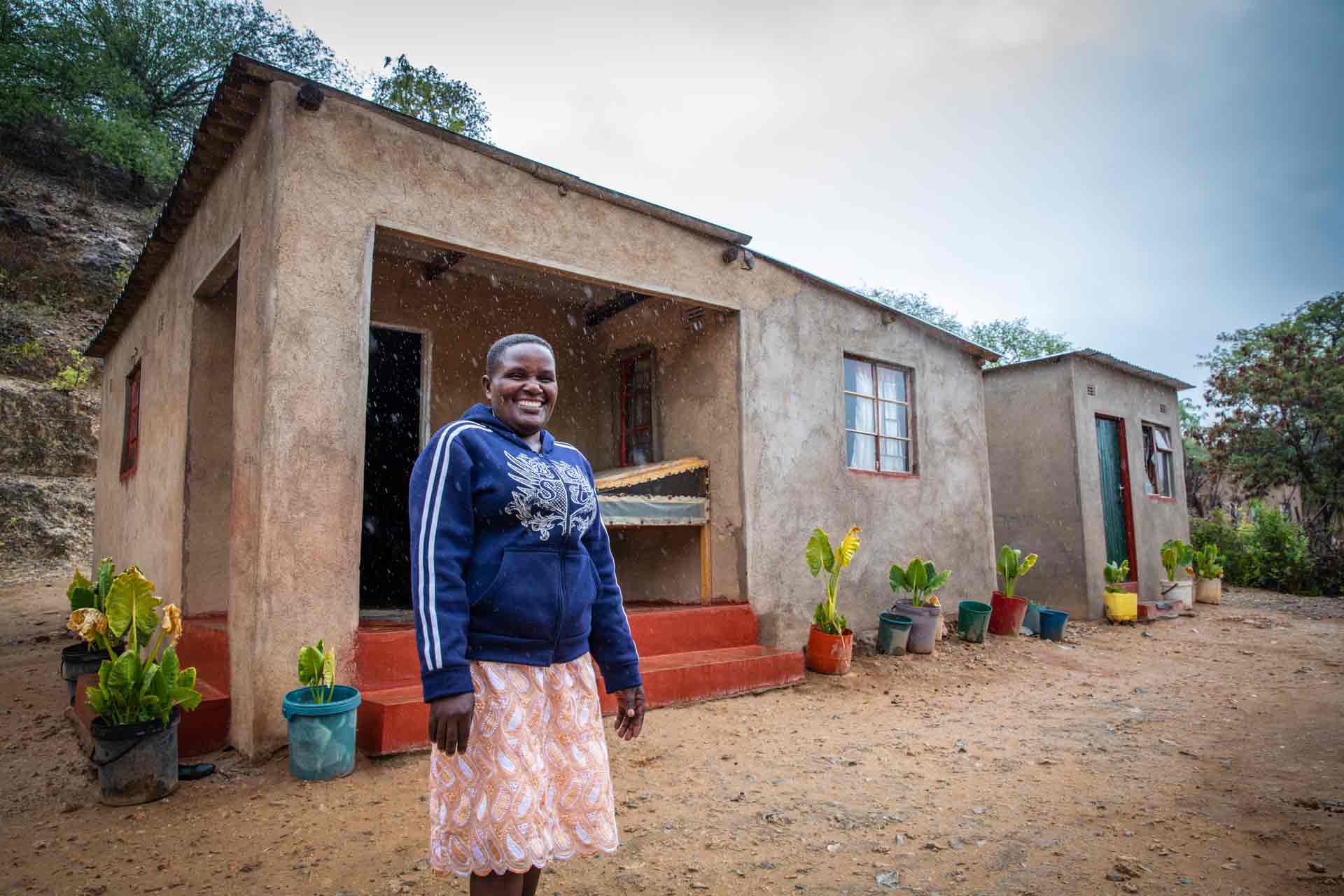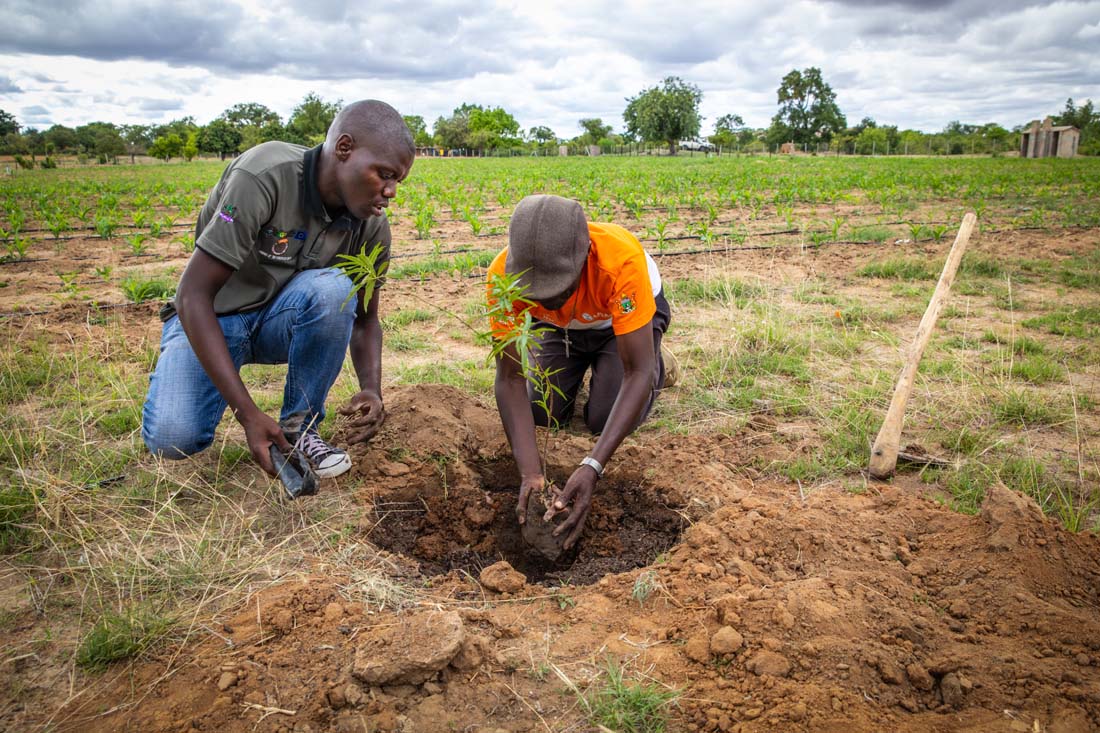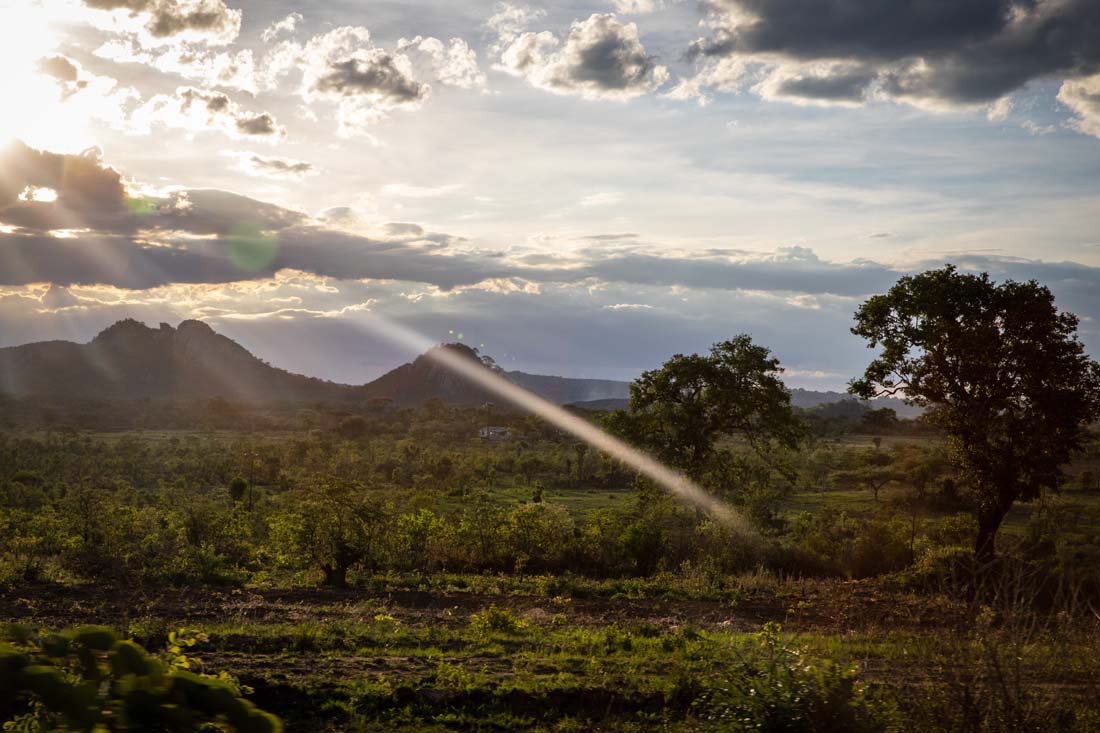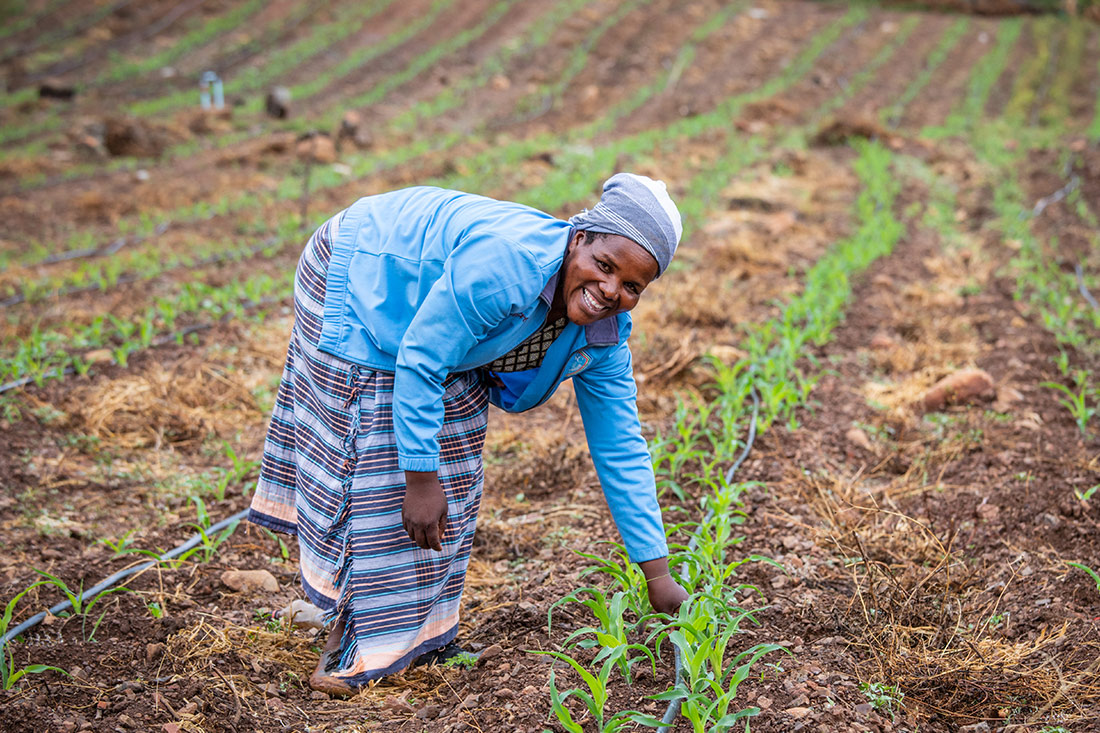
Mother of seven builds a new life in rural Zimbabwe
Story by Kristy J. O’Hara-Glaspie | Photos by Chris Huber
High up in the hills of eastern Zimbabwe’s Manicaland province sits a village in the Chipinge district that was cut off from the rest of the area. The community didn’t have a road that reached it, making it difficult to get to. Often times, the area was simply dismissed with assumptions that nobody lived there because it was so remote.
“When we started, it was like we were lost and detached from the rest of the world,” says Sarah Madenya, a 42-year-old woman in the community. “People used to look down upon us.
“Because we had no money or any other assets, people didn’t regard us as fellow human beings.”
In 2005, community members like Sarah decided to come together and building a road that would connect them way down the mountain into the rest of the district. They dug out the rock by hand to create a clear dirt road that stretched several kilometers. As they made progress, more people came to help. Two years later, their road was completely cleared, but the community still lacked opportunity and was plagued by poverty.
Sarah worked as a casual laborer, just working in different places as people needed help. Sometimes she would go and gather firewood to sell, which would yield about US$20 a month. With seven children at home, it wasn’t enough to feed them and her husband.
“The nutrition was very poor,” she says. “Sometimes they would just eat two meals a day.”
She would wake up early in the morning and prepare plain porridge for her children to eat, and she and her husband wouldn’t have a meal until dinner. They also struggled to pay the necessary school fees so their children could attend classes. The challenges piled up and caused quarrels in their marriage.
Fast forward a few years, and in 2014, World Vision’s ENSURE program came to their community to increase families’ resiliency through nutrition and livelihoods programs in their area. Funded by USAID, the program aimed to reduce malnutrition through maternal and child health programs and improve food security by building resiliency through agriculture and livestock programs.
“When ENSURE came, that’s when people started to see us as fellow people,” Sarah says. “We were so happy when ENSURE came, and we accepted it. The program brought great joy to us because when they came, we were suffering, and we had no food, and we got food.”
The program started with a supplemental feeding program to help families just have enough food to get by. But that was simply the beginning to hold people over until the more lasting work could be implemented — work that would not only change their community but also change the lives of people like Sarah.
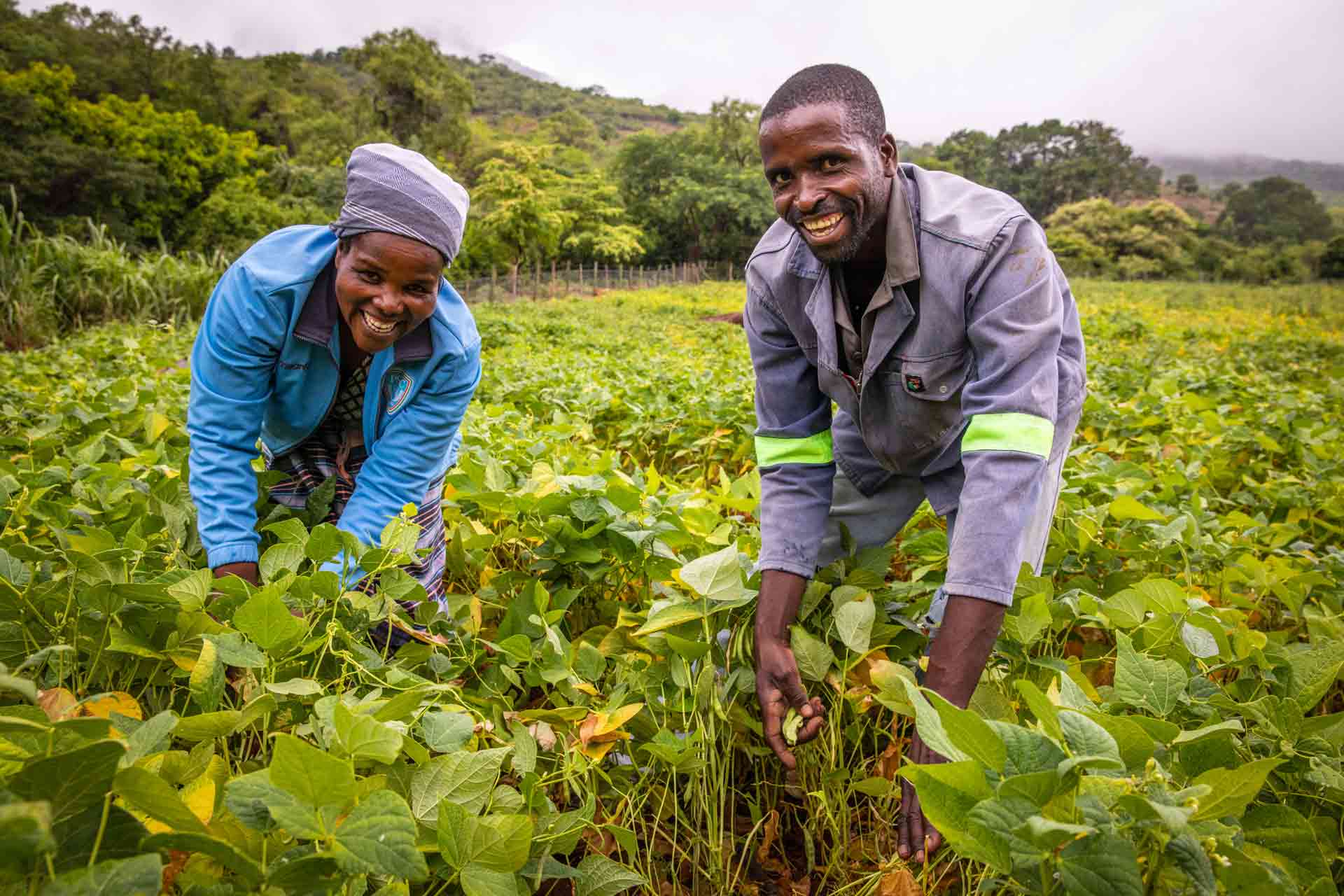
Building a dam
Through ENSURE, Sarah and other community members organized into groups and began extending the road they had already built to go from the school to a site for a future community garden.
From there, Sarah and other community members began constructing a weir dam that would provide water for irrigation at the site for the community garden. Sarah was elected one of the chairpersons leading the work.
“The first thing we did was build the foundation of the dam, and we had to bring in some rocks to construct our dam,” Sarah says. Everything was built manually, which was a feat, since getting to get to the site of the dam required a 10-minute hike through the woods while also carrying supplies. She learned how to mix and pour cement as well as other building skills.
Due to the hazards of the project, workers weren’t allowed to bring their kids to the work site, so the older women in the community looked after the workers’ children in a child-friendly corner so the kids were safe and out of harm’s way. This provided peace of mind so that workers could focus on what they were learning as they worked, as there were trainings on different topics, including gender issues.
“As we were working, there was no discrimination between genders — everyone was treated equally,” Sarah says. This was a key part of the ENSURE program to ensure that women were included, treated well, and empowered.
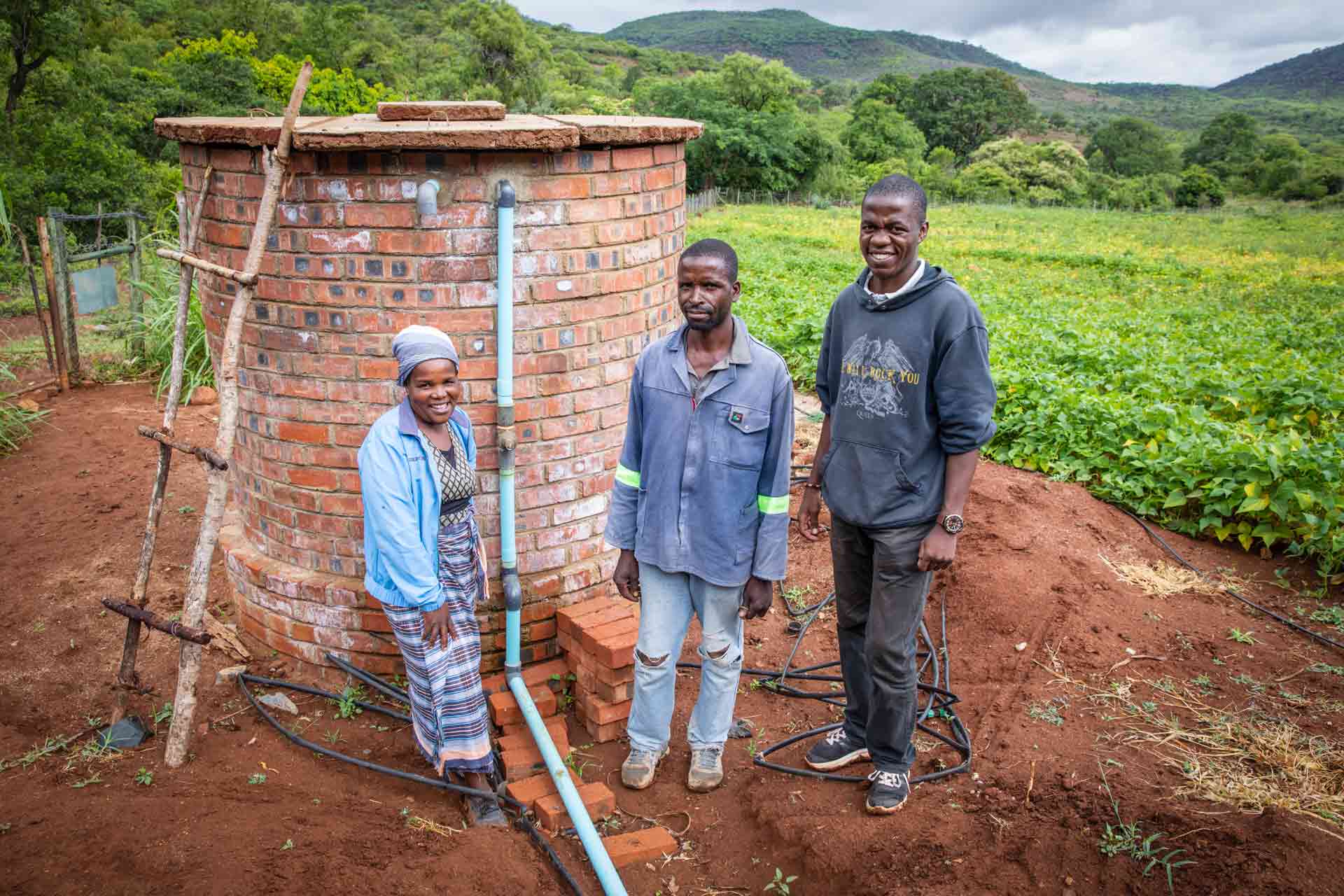
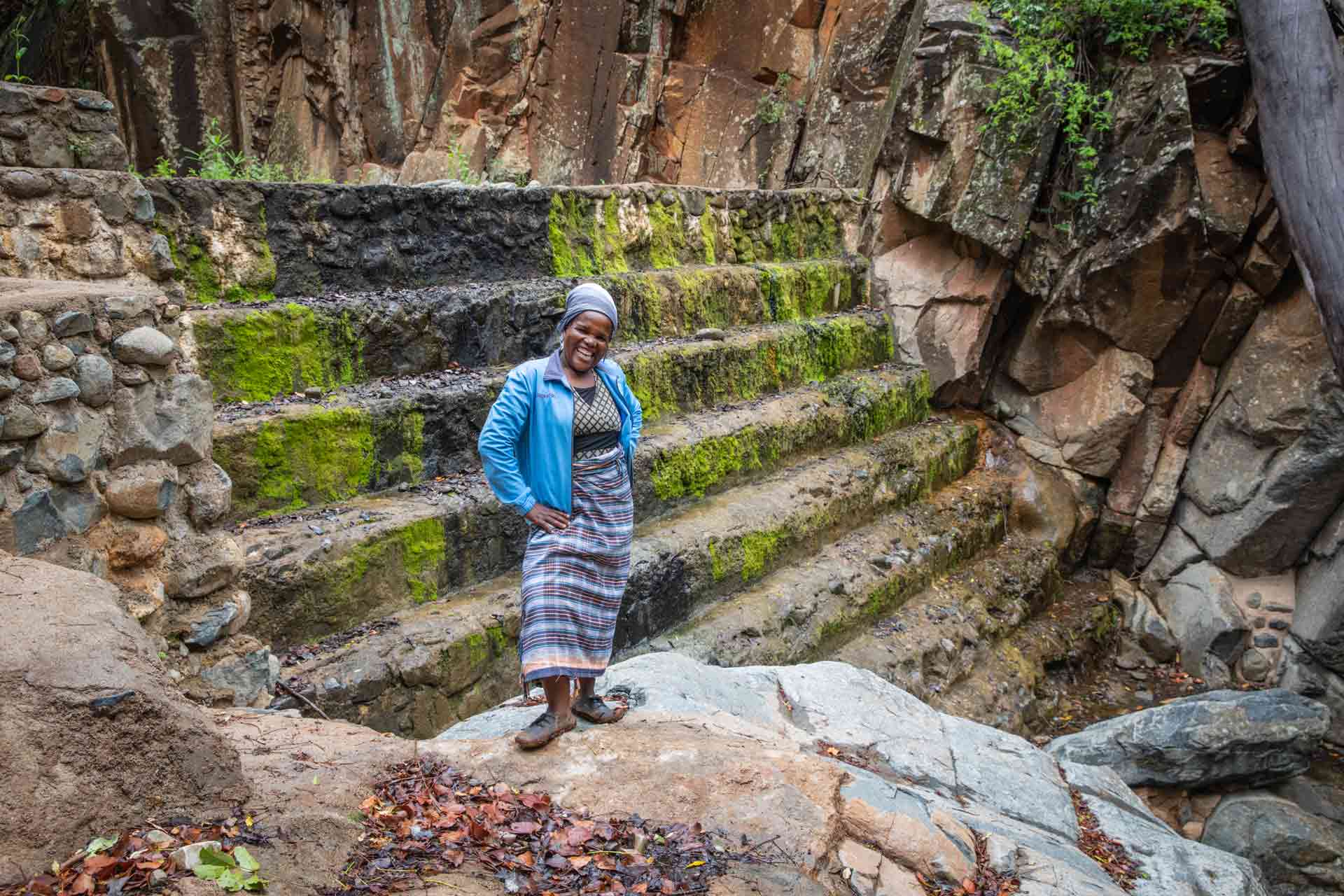
Next steps
It took six months, but once the team finished building the dam, the committee also built a gravity-fed irrigation system supplied by the dam so that they can plant crops year-round instead of relying on sporadic rains during the rainy season. Then they moved on to clearing the land for the irrigation garden. Once they completed that step, then they began crop production, starting with maize. They harvested that and moved on to tomatoes, beans, ground nuts and other vegetables.
Families were able to buy a small plot in the garden to plant on and tend to, and currently 107 families are participating. ENSURE also provides nutritional training so they can learn how to provide food from all the necessary food groups for their families in order to decrease malnutrition and other illnesses.
“We also had leaders teaching us on nutrition behaviors and encouraging us to seek healthcare from our health facilities, so we know how to take care of our children and properly feed them,” Sarah says. “We also had a team of men who devoted their time to spread the message on gender so people would become gender-sensitive.”
As their project progressed, something truly remarkable happened.
“As we were working, we caught the attention of the provincial administrator, who came down and promised to put in electricity for us,” Sarah says. “At first, we thought it was a joke, but the next day we started seeing progress.”
With the community garden project underway, ENSURE facilitators then began savings groups through a program called Village Savings & Lending (VS&L). The groups encourage community members to come together to collectively save. Without access to banking services, many people struggle with large purchases or expenses. Savings groups are the solution.
Groups members create bylaws to agree on how much they’ll each contribute monthly and how loans will be handled. If a group member needs a loan, they present their case to the committee, which will approve or deny their request. All the interest is paid to the savings group, and at the end of a set period of time, usually six months, the group then has a share-out, in which the amount they saved is divided between members. In 2015, Sarah joined a savings group.
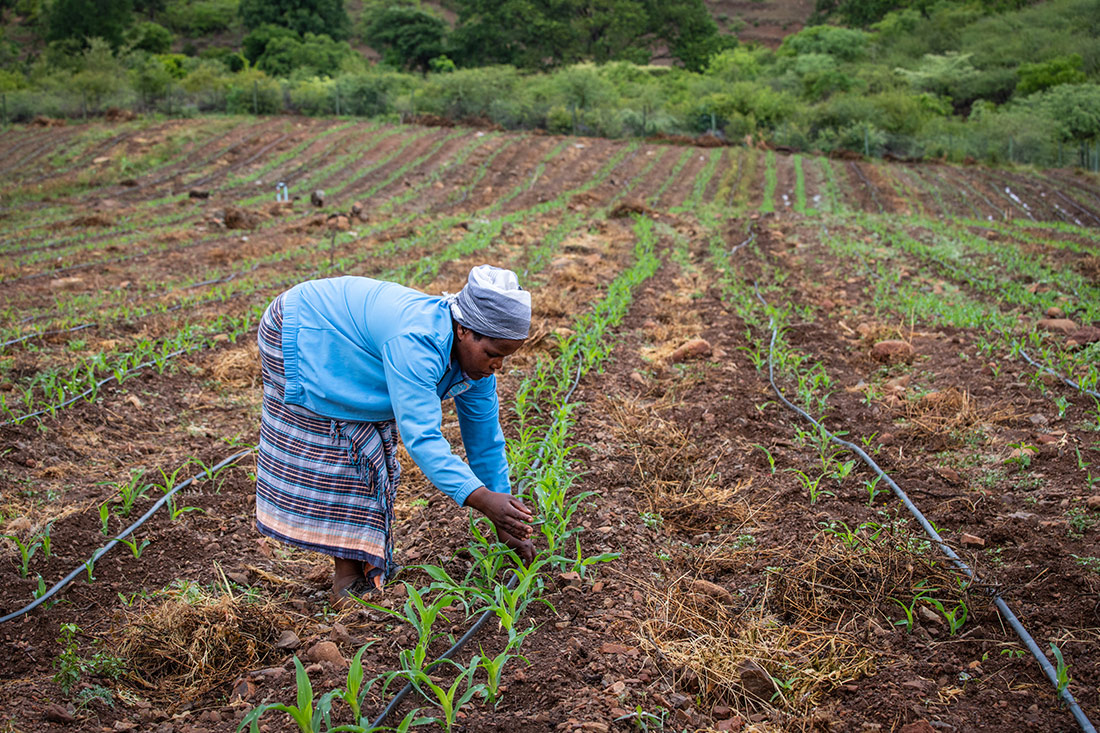
New hope
As a result of all the new programs introduced by ENSURE, Sarah’s life has completely changed. With the money she earned from her garden and savings group, she was able to build a latrine at her home, and then even build a new home with cement — herself — using the skills she had learned from building the dam.
“It’s been an amazing transformation in my life because of the ENSURE program,” Sarah says. “I used to live in a [poor] house, and now I’ve been able to construct a proper house. Now the love I have between me and my husband has now improved. We now have small livestock and goats, so there has been transformation. Even my husband supports me if I’m breastfeeding. He also cooks, so things have really changed!”
Sarah has also taken those skills she learned and is using them to further provide income for her family. She builds homes and other structures for the people in her community. She says, “I didn’t know anything. Now I know how to make cement and mix it.”
All of her business ventures combined now yield about US$500 a month.
“A lot has changed, especially in the children,” Sarah says. “I can now send them to school without difficulties. Now we are not fighting over issues. The children know when they use a toilet they have to wash their hands, so they are health conscious, and now when they go to school, they know they are school children, and they are here to learn.”
She said her children’s health has improved as well. “Now, because of ENSURE, we can have more frequent meals, and the porridge is no longer plain. There is peanut butter to give our children.”
This helps provide much-needed nutrients to keep the kids growing healthy. She says they also understand the dangers of malaria now, so they can encourage their kids to wear long sleeves when they are out in the evening to avoid being bitten by disease-carrying mosquitoes.
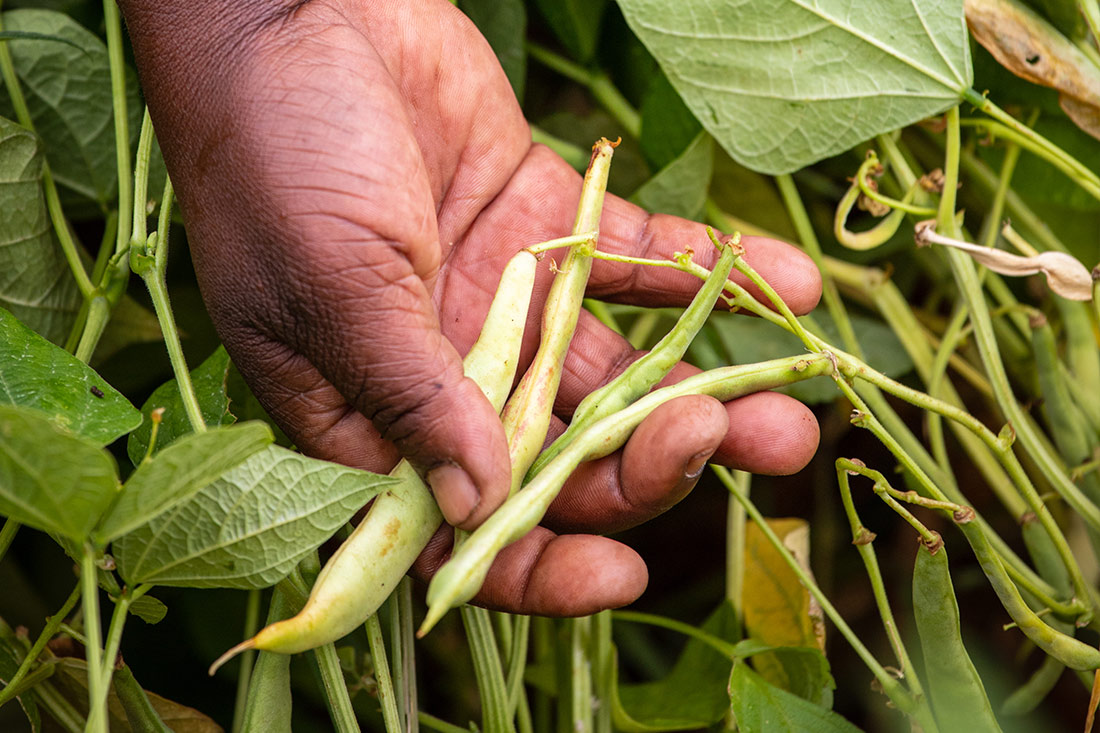
Community change
Sarah explains that they have changed their mindsets as a community in how they approach farming. They’ve learned to have early-, mid-, and late-season crops, and they’ve learned how to harvest and store crops better as well. The number of farmers who have used at least five sustainable crop practices in the past year grew nine percentage points.
But beyond the numbers, Sarah’s community generated an amazing crop of tomatoes — that drew sales from people all around the region. Joshua Bhuza, a facilitator with World Vision in the district, says, “They were coming to sleep here to buy tomatoes!”
With the garden now providing year-round crops, it helps provide food security in a hot and dry region. Richard Ndou has served as chief of party overseeing the entire ENSURE program. He says Chipinge was one of the last areas targeted with the dam and irrigation programs.
“That was very remote, and that community was very poor and developed,” he says. “What used to be a brown patch is all green. They are growing and selling; their levels are different.”
Across all the ENSURE program communities, more than 4,500 households now have access to 282 acres of irrigation land. As you walk through Sarah’s village, you see that evidence in new houses being built, new furniture in homes, more livestock, garden surpluses, and even more children going to school and having the opportunity to be children.
“I’m very excited about the VS&L component because before, we were seeing a lot of early child marriages people didn’t have financial stability,” Sarah says. “But now, because of VS&L, people are attending school and shaping lives the way they want.”
Zaba Mutembi, 49, has been the headmaster at Birirano Primary School in the community for 14 years. He says that before the ENSURE program, less than 20% of children were able to attend school. “Most people couldn’t afford it,” he says. Now he says 55% of the children are able to afford their fees.
Lastly, one of the biggest changes has been people’s attitudes toward women. “I’m very excited and happy about it,” Sarah says. “Our society is a very patriarchal society. Before, only men were in positions of leadership, but because of the gender trainings, we can now be in positions. I’m leading a group of men.”
She says having women in leadership helps reveal the deeper issues in a community, such as water. Before, women weren’t welcome to attend community meetings.
“In our community, women are the ones mostly responsible for fetching water, and if there’s a community gathering, and we want to address the issues of water, it’s difficult for the men to say.” But now, women are welcome, and their voices are heard. “They can now address the concerns because they understand the issues,” Sarah says.
This community that once was dismissed now has a rightful place on the map. She says, “Most people used to laugh at us and say, ‘Your area is inaccessible,’ but now they want to come and visit our area.”
William Mashava serves as the district administrator in Chipinge. He says, “I’m quite appreciative of the ENSURE programs and World Vision family. We also appreciate the assistance when the disaster (Cylcone Idai) struck. World Vision was there when we needed them, but if resources can be found, more people can be taken on board and more people can be assisted.”
So much change in such a relatively short period of time provides so much hope and gratitude in the hearts of the people who have participated and benefitted. Sarah says, “I’m very grateful and will forever be grateful for the ENSURE program because we have been able to raise the standards of our lives, and other people can now look at us and appreciate us as people.”
